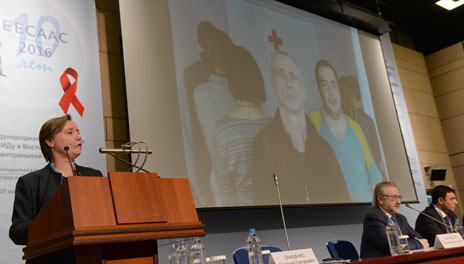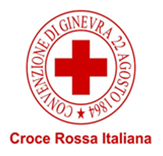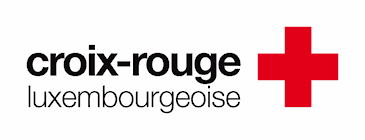Julia, 35, kicked her drug habit with the help of Belarus Red Cross. She is now a Red Cross volunteer providing moral and practical support to other women drug users with HIV as part of a gender-based Belarus Red Cross project. By Andreea Anca, IFRC
At 35, Julia from the Grodno region of Belarus recalls a life full of many problems and bad friends, but also of dramatic transformation. A former drug user and convicted criminal, Julia is now a proud mother-of-two. Caring and providing for her children became her priority. She also became a Belarus Red Cross volunteer and part of a group for other female drug users, providing moral and practical support. The group is part of the ‘Enhanced access for female intravenous drug users (IDUs) to HIV prevention and harm reduction services’ project.
The project was launched in 2015 the Belarus
Red Cross in close cooperation with the local authorities and other HIV organizations. The Italian Red Cross and the International Federation of Red Cross and Red Crescent Societies also support the project.
Women are identified as one of the main vulnerable groups to contracting the virus in Belarus where the spread of HIV is rife, with 120 people infected every month.
Reaching out to marginalized groups
Julia received psychosocial support from Red Cross workers between 2012-2013 when she was pregnant with her second child. The assistance contributed significantly to her motivation to kick her drug habit.
“The Red Cross support pushed me to change my perception of life in general,” she says. “Now I meet and support people like me and I am no longer ashamed of who I am.”
The lack of access to sterile needles, coupled with sexual violence and intimidation of female drug users, make this group particularly vulnerable to the transmission of HIV.
According to 2014 UNAIDS statistics, more than 10,000 of the 29,000 of HIV-positive registered people in Belarus were women. Together with other former Soviet states, Belarus is home to the world`s fastest growing HIV epidemic.
While new HIV infections have declined globally, rates have soared in Russia, Central Asia and Eastern Europe by 250 per cent since 2001. Increasing numbers of HIV cases have coincided with the rise of drug users injecting opiates, which has increased since the mid-1990s as a result of the socio-economic crisis that followed the break-up of the Soviet Union.
The Belarus Red Cross was the first organization in the country to run needle exchange programmes. Over the years it also developed expertise to provide gender-based services and advice on how to halt the spread of HIV among women.
The vital role played by Red Cross and Red Crescent National Societies in the region was highlighted at the 5th Eastern Europe and Central Asia AIDS Conference in Moscow in March. Through their large network of volunteers, National Societies are best placed to contribute to tackling HIV transmission and bridging the gap between health officials and local communities reaching out to the most marginalized groups.









